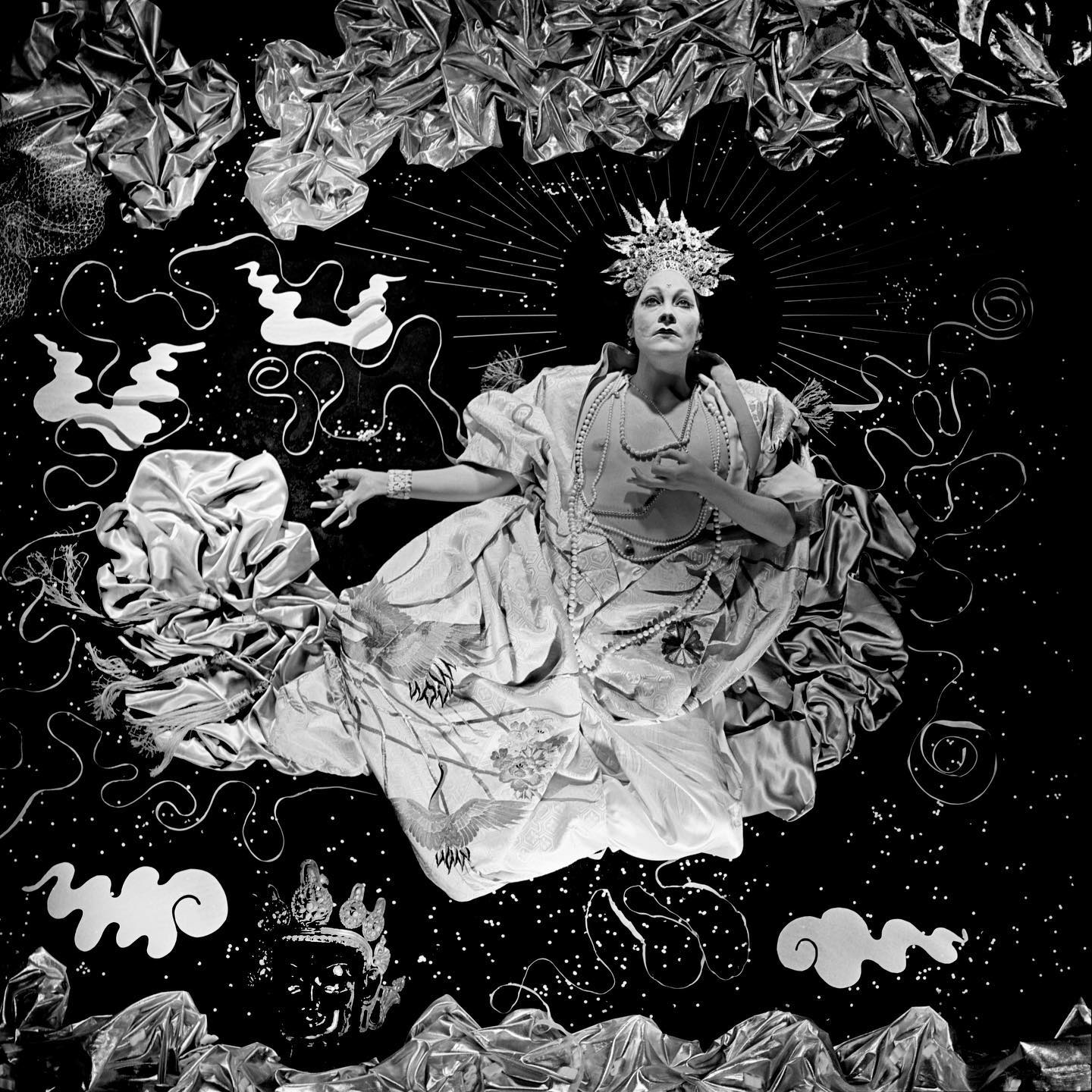Terrence Dixon – Other Dimensions
On last year’s Reporting From Detroit, minimal techno visionaire Terrence Dixon mapped a portrait of the city that made him. Like sonic cartography, the music on Reporting echoed the architecture of his home city, both physical and social. Sparse, spacious, yet simultaneously dense, Dixon notes how his ‘Detroit techno’ comes from “living in a city with a really low population, no businesses, one house on the entire block, no jobs… everything about Detroit is minimal.” What Reporting succeeded at most was to highlight Dixon’s ability to world-build through his music, minimal as it may be. His latest album Other Dimensions is a sort of counter-argument to Reporting, and a return to the icy minimal futurism that defines most of Dixon’s career. Using a similar world-building formula to Reporting, Other Dimensions finds Dixon preoccupied with interstellar space as opposed to the concrete ground and steel skeleton of the city.
Exploring matters of the metaphysical and extraterrestrial, Other Dimensions makes the most of its subtlety by skewing everything toward the uncanny. Even at its most sparing, Dixon’s barebones approach ensures whatever elements he does use are programmed toward a place outside the fabric of this universe. Essentially created from three key components, Aurora takes shape as a looped, undulating organ arpeggio against a soft, continuous kick drum pulse. Each element appears to wind back on itself then lurch forward, echoing the incomprehensible and psychedelic movements of its namesake phenomena. On Final Results, amorphous and slippery pads dip in and out of a regular time boom, while a siren like arpeggio gradually grows in urgency. Like Reporting, the success of these minimal dioramas lie in Dixon’s ability to synthesise sounds that together, paint a picture that is far larger in scope than the sum of its parts.
Download and stream Other Dimensions here
In committing to the tonality of the sort of cosmic exploration that Other Dimensions proposes, Dixon is able to conjure incredibly visceral experiences. Notably, he avoids lapsing into exhausted sci-fi tropes (though the choral weirdness of Brilliant Rotation comes close). There are no X-Files style whistle synths, though he does pull from more outré sci-fi references. The epic organs of Hans Zimmer’s Interstellar appear more than once in synth form, and the primordial, predatory quality of the drums on Mystical Journey conjures images of racing Xenomorphs or that infamous pre-apocalypse rave on the planet Zion. The drama and urgency of Elliptical Orbit could easily soundtrack the most tense moments of Dune, and it does so with nothing more than a muted but skittish half-time flutter and ominously looming drone synths. Like Reporting, Other Dimensions is studded with ambient soundscapes. It is within these strange, unsettling waves of sound that Dixon’s vision of Other Dimensions rips through into our own, each a considered attempt at crafting something genuinely uncanny. Small Discovery slithers with the horror of an alien life form, distorted strings morphing into the preternatural call of a monster from out of space. The title track drifts into icy expansiveness, an Interstellar style organ swelling and receding into the increasingly murky abyss around it.
With Reporting From Detroit, Dixon seemed to have entered a new phase in his minimalism and this continues into Other Dimensions. Skeletal and sparse, Dixon manages to hit on the strange discomfort that arises from simplicity, using it to craft this trip into the centre of a wormhole. It’s often difficult to accept that the music here is so simple, by virtue of its strangeness. Our brains are forced to try and perceive more than what is present, and in doing so Dixon literally shifts us into thinking about dimensions outside of those that exist. It’s genius level world building, and we can’t wait to see where he takes us next.
Listen to Aurora from Other Dimensions below.
Follow Terrence Dixon
Facebook | Twitter | SoundCloud



